Lambchop, "The Hustle"
Yes, that is correct, new Lambchop. If I had a Lambchop siren I would be GIFing it right now.

Wait, what’s that you say? A new Lambchop track? An eighteen-minute new Lambchop track? One that “seamlessly shifts between movements, a foundation suggestive of krautrock and early electronic music, gorgeously ornamented with perfectly placed piano and horns.” And the album is called FLOTUS? It comes out on November 4? It might be the last good thing that happens in November? Okay, you didn’t say that last part, I added that, but anyway, THERE IS A NEW LAMBCHOP ALBUM COMING OUT and here is a song from it. Let’s meet back here in 20 minutes and talk about what we think.
Don't Give Compliments You Don't Mean
Unless it’s sarcasm, in which case, don’t let me stop you.

I have these iridescent Nike Blazers (mid) that I waited patiently for in an an online line while I was in a hotel room in New Orleans. It honestly did not take that long and they cost me $110 which is both a lot and not a lot of money, depending on which way you look at it. They are awesome as hell and every time I wear them people flip out and gawk and point and mostly just say “Shoes!” or “Wow!” Most of the time they don’t even say “I like your shoes,” or even “Cool shoes,” they are just observing the fact of my shoes.
This is totally great because the shoes are so outrageous they don’t invite you to have an opinion on them per se, just to see them for what they are: iridescent limited-edition mid-rise sneakers. Wow. Crazy. Silvery. Most of the rest of the time, we go around in life remarking on clothing items that stands out by saying, “I like your hat!” or “Cool sunglasses,” or “Nice cravat,” (Maybe because of that last one you can see where I’m going with this) when what we really mean is, “Hmm… better say something.”
I’m here to call bullshit on most of your compliments. Don’t lie! You don’t actually like my cravat and you definitely don’t think it’s cool. You’re just pointing out what you see, because it would be awkward not to mention the bright-pink visor, or the red tights (an item of clothing I used to own and frankly looks bangin’ with a black dress in the winter), or the neon socks. Using words like “cool” and “nice” in front of these words implies that you, the speaker, think said items are cool, when it is painfully apparent from the height of your eyebrows and the flatness of your voice that you just feel obligated to remark on them, but not to give your honest opinion, because that would be impolite. Thanks for holding back… NOT!
What should you do instead? Well for starters, [Mrs. Rabbit]. No one has ever gotten in trouble for something they didn’t say. (Yeah I know it’s a thing now to call people out for ‘remaining silent’ on issues, but I’m talking about private life, not public life. I can’t make you love me if you don’t, etc.) I think that’s actually the extent of the advice I have because if I’m telling you you can’t say “cool” or “nice” when you don’t mean it, then nothing at all is better than the next option, which is “I see that you are wearing very shiny shoes today.” Actually that would be kinda badass, but is impossible to deliver without sounding condescending.
Now, I know what you’re thinking. Just like the guy last weekend in line in front of me at Williamsburg Pizza (erstwhile Awl podcast sponsor, whaddup) pointed out, “But isn’t that why you wear those shoes? Because people notice them?” To some extent, yes. Then don’t wear them if you don’t want people to lie to you! That’s one option, sure, but I love these shoes, and I think we can totally do better. White lies are important, you say. They keep marriages and friendships together; white lies make the world go round! I don’t know, it seems exhausting.
Why does any of us wear what we wear—because it looks good, hopefully feels good, and maybe makes a statement. I don’t know, I’m not a fashion scholar. Some people wish to disappear into their clothes. But I guarantee you most people want to look at least halfway decent. Others, like me, are probably just messing with your dials—sure, iridescent Blazers are a few decibels higher than most, but that’s just because I’m an IRL troll and I’m baiting you. Some of the best hundred-and-ten bucks I ever spent.
The Only Thing I Wanted to Accomplish By the Time I Was 30 Was to Stop Worrying About Turning 30
And other answers to unsolicited questions.

“As a I kid I made these big plans for everything I wanted to accomplish by age 30. And I only have 6 months left and tons of things to go! What should I do?” — Steve Almost-Thirty
As a kid I wanted to change my name to “Matthias.” Kids have terrible ideas. They have no idea that life is essentially cruel and meaningless. It’s not their fault! We basically spend their first 12 years teaching them to be nice to other people and share things and then it’s like “Just kidding, welcome to High School.” After that it’s people acting like packs of wolves until you’re in your 70s. Why don’t we warn kids that the world is kind of awful and you should be on your toes? Then we wouldn’t have any independent movies about sweet, beautiful kids who never grow up.
The Olympics really makes this kid-dream-problem even worse. You see all these kids who have been pole-vaulting since they were 4 years old with little letters to themselves about winning gold medals. And you think, that kid is awesome! They always knew what they wanted to do! And they did it! But if you asked them now they would probably give their gold medal back to like go to their prom instead of having to practice every day of their damned life.
Don’t listen to your kid self. You’re probably doing fine. First off, you are already technically 30. You were definitely alive in your mother’s womb! I don’t know why we start counting when we’re born. It’s not like we appeared magically from a puff of smoke! Those months count! So you’re already 30 and you’ve totally failed at everything.
Secondly, time is an illusion. I mean, are you really going to let a calendar decide when you will do things by? What is the difference between being 29 and 31? Just that you’ve gone through this whole dramatic turning 30 thing. 31-year-olds are fun, they basically can stop worrying about not being in their 20s anymore. I spent my 20s drunk, my 30s sober and my 40s so far mostly napping. Do I worry about not having my life together or not having accomplished anything of note? I do not worry about that. I am very worried about my Fantasy Baseball team. And I also worry that my beard is growing in kind of crooked. Those are my two big worries.
What could you possibly want to accomplish by the time you’re 30? Most people’s lives peak too early, in kindergarten or high school. Space out your achievements. We’ll all be living longer soon, thanks to lasers and DNA and other things I don’t understand. You’re gonna want to have big scores later on in life, too, like that Jack Lemmon character in Glengarry Glen Ross. He was psyched! For a while! You’re gonna want to feel like YOU STILL GOT IT. That is an awesome feeling that no 30-year-old outside of maybe professional tennis or the sex industry knows the feeling of.
So don’t worry about living your life all at once. Or that you haven’t done enough. You’re probably doing fine. Or you’d be doing even better if you stopped giving a shit. That is really the best advice this grown-up loser has. Relax. We’re all screwed and we’ll all be dead a long time. Barely anyone will remember us and the decisions we make will have like zero impact on the world. We are basically marionettes dropped through a black hole into an endless abyss. Try to enjoy it.


“Strangers are always asking me for directions and it drives me nuts. How can I get them to stop asking?” — Lost Lucy
You can’t do anything about it. You just have soft eyes. Something about you just screams out to tourists, “I will help you.” That’s not a bad thing, but it can be a heavy responsibility. I don’t know why tourists wait on the subway platform for a door to open so they can put their fate into the hands of strangers. “Does this train go to Prince Street?” some doe-eyed blue-haired rube asked me yesterday. Eventually all trains go to Prince Street, lady. I mean, it might go through Queens and then turn around and go to Prince Street eventually.
But I can’t help but help people. It makes me feel all warm and fuzzy inside. But it is also impossibly annoying. And I do have a few ideas about how to avoid the responsibility of having to help people. You’d think that by looking tough you could avoid eye contact with strangers. But people just love bad people. There is something so dangerous about taking street directions from an obviously dangerous person. They probably know all kinds of dangerous short-cuts. “Sure, just hop over the barbed wire, run through a minefield past the Starbucks over there.”
I have taken to wrapping my head with an ace bandage. With little spots of salsa. I ride the subway and sing “The Only Living Boy in New York” to myself. When people ask me if I know if the subway is going to Prince Street I look at them balefully. “I don’t remember. I just don’t remember.” There’s a tearful twinkle in my eye. As I search the car “in an air of lost connections.”
Jim Behrle lives in Jersey City, NJ and works at a bookstore.
The Last Days of the Boy Masterminds
The internet was their playground, Milo Yiannopoulos their cheerleader.

You know the boy mastermind of the internet: snarky and full of himself, a know-it-all shielding his insecurities behind the anonymity afforded by cyberspace. Heck, maybe you even were a boy mastermind, back when the web was young and uncivilized. But his natural habitat has become crowded with “normals” and “sensitives” — types he probably thought he had left back in the real world. Much to his chagrin, the “IRL/URL border” has become much more permeable since the age of Mosaic and Netscape Navigator, and what was once a simple turf war has transformed into a bitter rearguard struggle to preserve a piece of a rapidly vanishing past. Now only one boy mastermind claims to stand in the way of his culture’s looming extinction.
That great self-appointed champion of this disappearing homosocial order is Breitbart provocateur Milo Yiannopoulos, who waded into the fray with attacks on feminists he believed were politicizing a world of computer gaming that had long been the province of men — and particularly of boy masterminds. Milo laid out his case succinctly enough, telling women who were bothered by the old and nasty internet to simply “log off” and let the boys have their vicious fun. Milo is himself a boy mastermind of the highest order, an online bully who earned a Twitter de-verification, a temporary account suspension, and finally permanent banishment for his insulting tweets and harassment campaigns.
Milo’s departure should come as no surprise to most of us; given a choice, the boy mastermind always opts for anti-social media. Milo appears to have every intention of remaining on the fringes of the mainstream, relying on his wild antics to draw attention from passersby with much more serious and important things to do. But as with any lost cause, Milo’s quest to preserve mastermind culture does raise an interesting question: is this something better left abandoned and forgotten?

Drive through the rural southwestern corridor of Pennsylvania and you will see many Confederate flags on display. This has always struck me as curious, since Pennsylvania fought for the Union. But that flag is no longer a show of support for a rogue state; it is, rather, a nostalgic emblem of a make-believe era when society was static and people knew their place. Milo and his ilk are similarly invoking a halcyon vision of a benighted time when, as bad as things were, they at least had a special and secretive room of their own.
I entered that private room when I was eleven. My family connected to the internet in 1993, and the version of it that I encountered through the Mosaic web browser struck me as an ugly, confusing place. It lacked meaningful curation and was navigated mostly through primitive impressionistic path-finding, with the user directed from one pile of black text set against a white background to another. Images could be displayed, though even the most low-resolution image took an eternity to load (in spite of that limitation, smutty pictures and other vulgar content soon began to accumulate on FTP servers). In time, I discovered bulletin boards and forums relevant to my interests — comic books, wrestling, weightlifting — and immediately started engaging in pissing matches with other awkward loners studying those subjects.
This early internet was a kind of messy bachelor pad, and the boy masterminds abounded. Each of us had independently discovered the web, as we had done with Roger Corman films or post-punk music, and we manspread across this open frontier. And it was male-dominated terrain in those days, in principal part because of a process of acculturation that still equated computer technology with “nerds” and discouraged women from participating altogether. There was a running gag about the AOL chatrooms, in which parties exchanged wholly fictitious a/s/l information with one another, that such conversations inevitably devolved into two men who were pretending to be teen lesbians “cybering” with each other.
This was the golden age of the boy mastermind, a time when regular usage of the internet coupled with a poorly designed Geocities homepage was sufficient to cause your out-of-touch parents to label you a “techie.” The multifarious harassment methods perfected in later years by the likes of 4chan and 8chan were still in their embryonic stages, but they were no less trauma-inducing. mIRC, in particular, was a bloodbath: I recall vicious mastermind competition for chatroom status that led to the creation of special password-locked rooms for private cliques, empty boasting about physical and sexual accomplishments, and seemingly endless attempts to “dox” (discover private information about one another, up to and including posing as someone else, usually a woman, to score nude photographs) and “break” (i.e., trigger some kind of serious mental breakdown) our rivals.
As this rough-and-tumble culture coalesced, it would prove a useful vehicle for media outlets looking to increase viewership via scary stories directed at flyover country. The Columbine murderers Dylan Klebold and Eric Harris, who played the bloody first-person shooters Doom and Quake together, were villainous boy masterminds straight from central casting: a two-man “trenchcoat mafia” who conspired to wreak vengeance on their normal high school classmates. After Columbine, the boy mastermind became more than just an outcast; he was now a suspect, too.
With the bursting of the dot-com bubble in 2000, the boy mastermind started sharing his space. Various companies were aggressively trying to recruit internet users, and internet speeds increased beyond the limitations of dial-up modems. But by 2004, the boy mastermind surely saw the writing on the wall. All kinds of regular folks had logged on, and not just to arbitrage their store-bought Beanie Babies on the eBay market. Now the boy mastermind was faced with a fast-rising wave of people, including women and older adults, weblogging about their feelings. Not only that, but content that these people might want to read was migrating online too. Where media and newspaper websites had once been mere bookmarks amid a sea of fanfiction and other DIY material, they were now integral parts of those businesses.

Where once all the virtual world had been men, it was at first slowly and then suddenly a place for everyone else. Eventually stories about grandparents having blogs ceased to be novel; eventually they ceased to be stories at all. And so the boy mastermind retreated further, moving his shitposting and harassing operations to text-heavy forums that recalled the bare-bones internet of yore.
Social media made things worse for the boy mastermind. Friendster and Myspace began allowing users to associate faces with names, lifting the veil of anonymity. Facebook and Twitter universalized the process, creating privately owned landscapes where second lives collided with, and eventually just became, first lives. Boy masterminds still linger on these sites, but their anonymous accounts and hateful shitposts are increasingly anomalous on a publicly monitored internet more inclined toward polite speech and thoughtfully constructed identities.
They’ve lost their games and comics, too. Now that nerdy popular culture is just plain old American monoculture — all Avengers, Pokémon, and Dungeons & Dragons. The boy masterminds find themselves having to accommodate an influx of minority characters, game designers, authors, illustrators, and programmers. The response led by Milo boils down to an angry won’t-you-girls-leave-our-stuff-alone plea, and the process they’ve critiqued is inexorable. The internet is more populous and diverse than ever before, and individual users have differentiated and diversified themselves to stand out. Even Milo is a unique product: a flamboyantly gay, ethnically Jewish men’s rights activist and self-professed Donald Trump fanboy speaking on behalf of an aggrieved mastermind community that includes scores of unrepentant homophobes and anti-Semites.
But is the culture that Milo champions deserving of preservation? No more than the culture of the Confederacy. Both are historical facts that ought to be remembered, and the activities of their present-day supporters warrant a certain degree of scrutiny, but neither represents a way of life that has any place in the modern world. Milo portrays his fellow boy masterminds as warriors who succumbed to a force greater than their own. But that’s a load of malarkey: they are just losers, and it’s time for them to get lost.
Auntie Flo, "Reverence Drum Meditation"
What’s going on in that head of yours?

Do you meditate? I know some people who swear by it. I know other people who think the idea of being alone with their own thoughts for a set period of time during which they are devoid of all other distractions may very well be the most terrible punishment anyone could suffer, a malevolent combination of terror and boredom, plus when you open your eyes you’re still the same dumb person you were ten minutes before but now you’re even more aware of how vacuous and devoid of significance your dreams and desires are. Let’s not even mention how stupid you look doing it. Still, apparently it helps some people? I guess it takes all kinds to make a world. Hey, here is some music with the word “meditation” in the title that I think everyone, even you, will enjoy. So enjoy.
New York City, August 7, 2016

★★★ Overwhelming brightness came straight down. The air was hot but the sun on the skin was scalding. It momentarily seemed like a good plan to go past Columbus Circle to the art supply store, but the phone browser confirmed the memory-hunch that the art supply store had gone out of business. The muscles that winced against the light snapped back into relaxation in the deep darkness under a scaffold. Up ahead the buildings and the cranes in among the buildings, making more buildings, were free of any blurring haze. Some chocolate had melted on the pavement into a thin reddish puddle. As dinnertime neared, the cross streets were well shaded, the heat there reduced to a background warmth, but where the sun found space on the avenue, it was as hot as ever. At Lincoln Center, more people stood in the shadow of the opera house than dared to venture beyond it, into the blazing open, to approach the fountain.
Mike Pence Should Get Trump to Withdraw
Here’s who he needs to talk to.
BY SOME REPUBLICAN WHO SHOULD KNOW BETTER

I say this not as a member of the so-called Never Trump faction of my party. Though Mr. Trump was not my first choice for the nomination, I found his attack on the established order appealing at times, even entertaining, and respected the wishes of the clear majority of Republican primary voters. Republicans have longed for a leader who will put black people in their place since Barry Goldwater first showed the nation you could pretend it was about Constitutional principle to do so. But in recent weeks — indeed, months — Trump’s oversized personality and inability to stay quiet for just one minute has made it impossible for even genetic freaks with thirty fingers on each hand to cover their eyes and pretend they couldn’t see what he was doing.
Even if he were to win the presidency — a job that requires the ability to not make it about yourself every single second and a modicum of non-grossness — it is not clear Mr. Trump will be able to master or enjoy the position. Surely Congress wouldn’t let him put his name on the White House, which you sense is really all he wants. Now he needs someone to guide him to a graceful — inasmuch as that word and Trump can co-exist — exit. Mike Pence is that person.
Were Mr. Trump to leave the race now, on whatever pretext, he could state honestly that he bested a formidable Republican establishment and that he brought important issues, such as how our troops get captured or die too much, to the fore. He would win the gratitude of his party for not forcing them to say out loud what they have been campaigning on subtly for years. And with a little luck, his running mate, should he replace Trump as the nominee, might well defeat Hillary Clinton, who has that voice, that woman voice, you know what I mean.
If Mike Pence truly believes Donald Trump will be a capable president, then he should do nothing. But if he has any question about whether or not Donald Trump can do the job, then he has a responsibility to pray to the Lord that He turn Donald Trump into a beam of light and summon him up to Heaven, where God and Jesus and the aborted babies live. He needs to pray, pray every day, for God to call Trump home in a fanfare of trumpets.
Though it is against his nature and probably his instincts to turn against his running mate, the Indiana governor must put the country first. It will be difficult: This is not simply praying a homosexual straight. This is some serious on-your-knees, please Lord please, beseeching of the Creator. There might be some child-sacrificing required; this is a pretty big ask of God. But if he wants to save the Republican party Governor Pence needs to explore every option, and right now the only option involves prayer. Or magic, which is a kind of prayer but the bad kind. You know who does magic? Witches. You know who’s a witch? You get where I’m going with this.
Mike Pence did not ask to be put in this position, to be sure, but neither did others to whom history handed daunting tasks. In a very real sense, the future of America is in his hands. And those hands need to be clasped together very tightly in submission to Jesus, who is our only hope right now. Otherwise we are so, so fucked.
How To Hold A Grudge
(After wikihow)
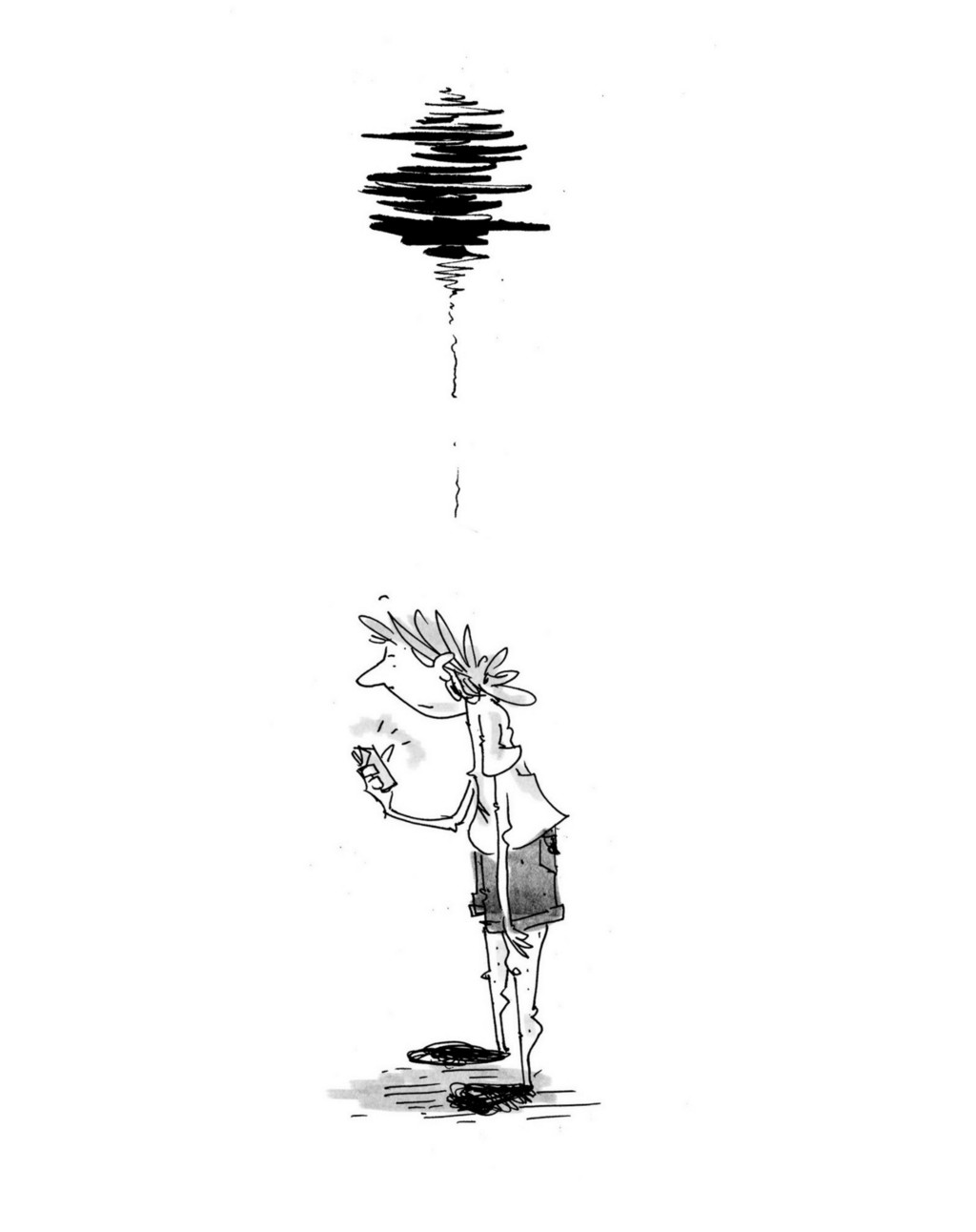
Be calm and confident when picking up the Grudge.
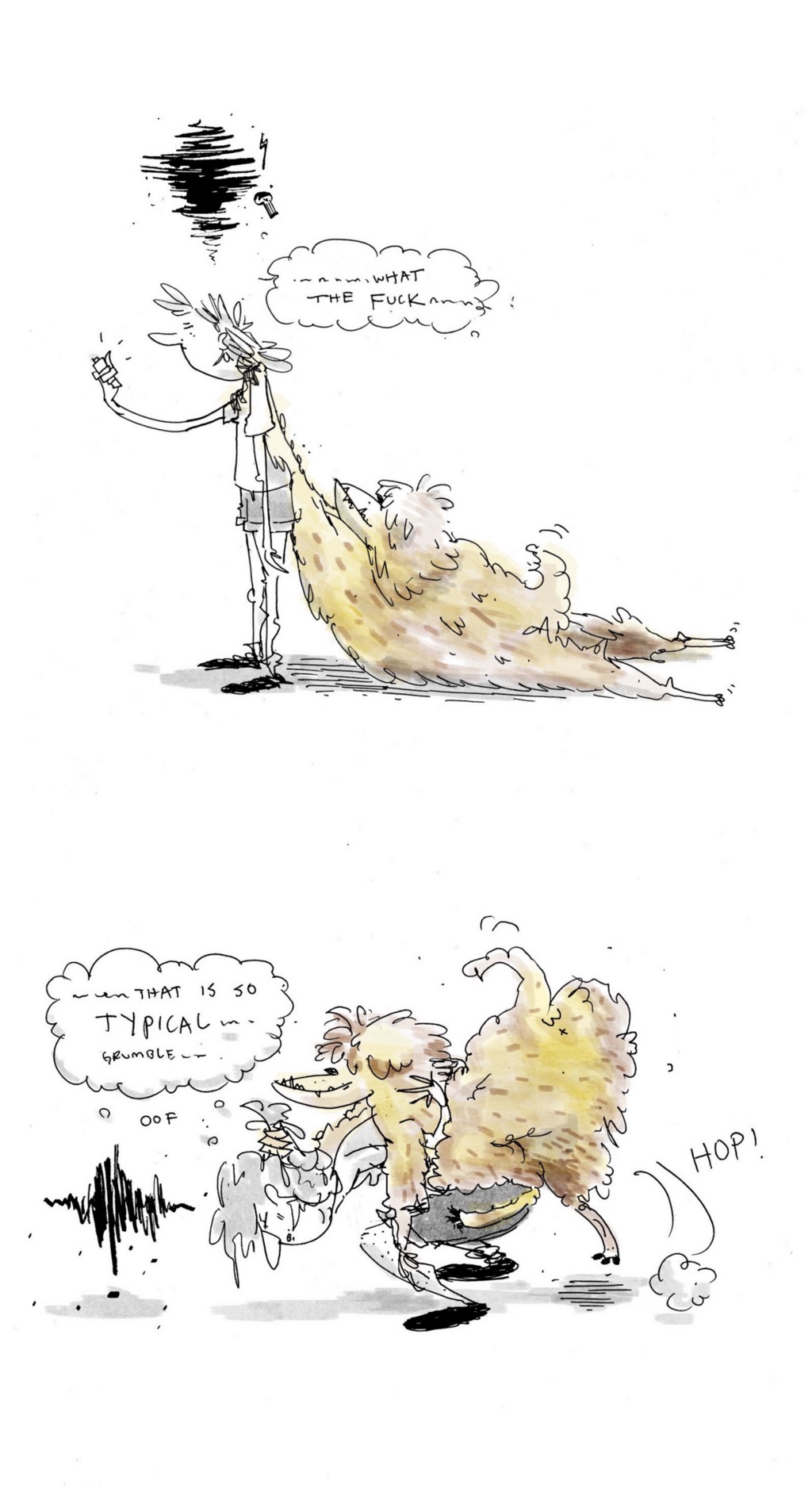
Support the Grudge’s head with one arm and its body with another.
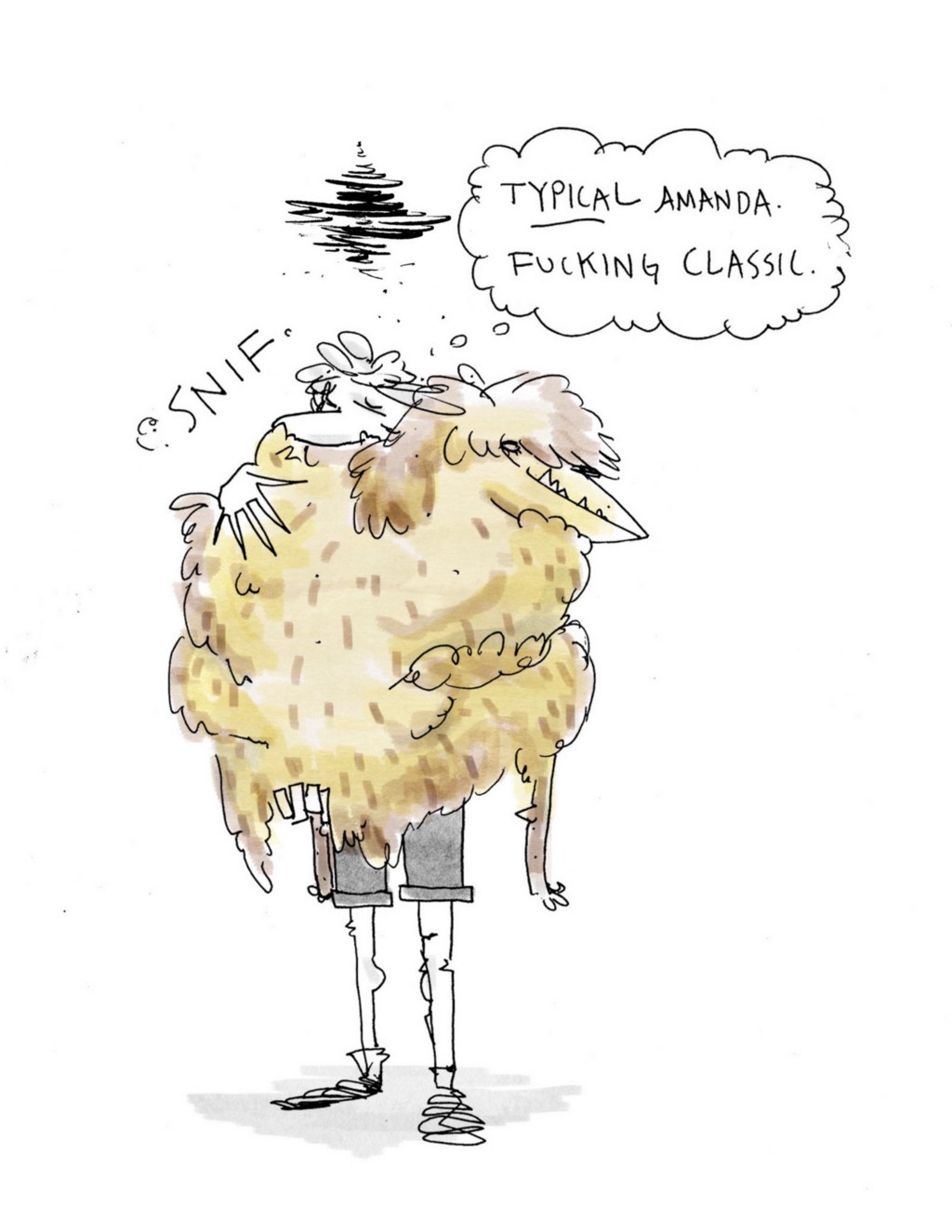
Make chest-to-chest contact with the Grudge.
Grudges are instinctively soothed by the sound and sensation of your heartbeat.
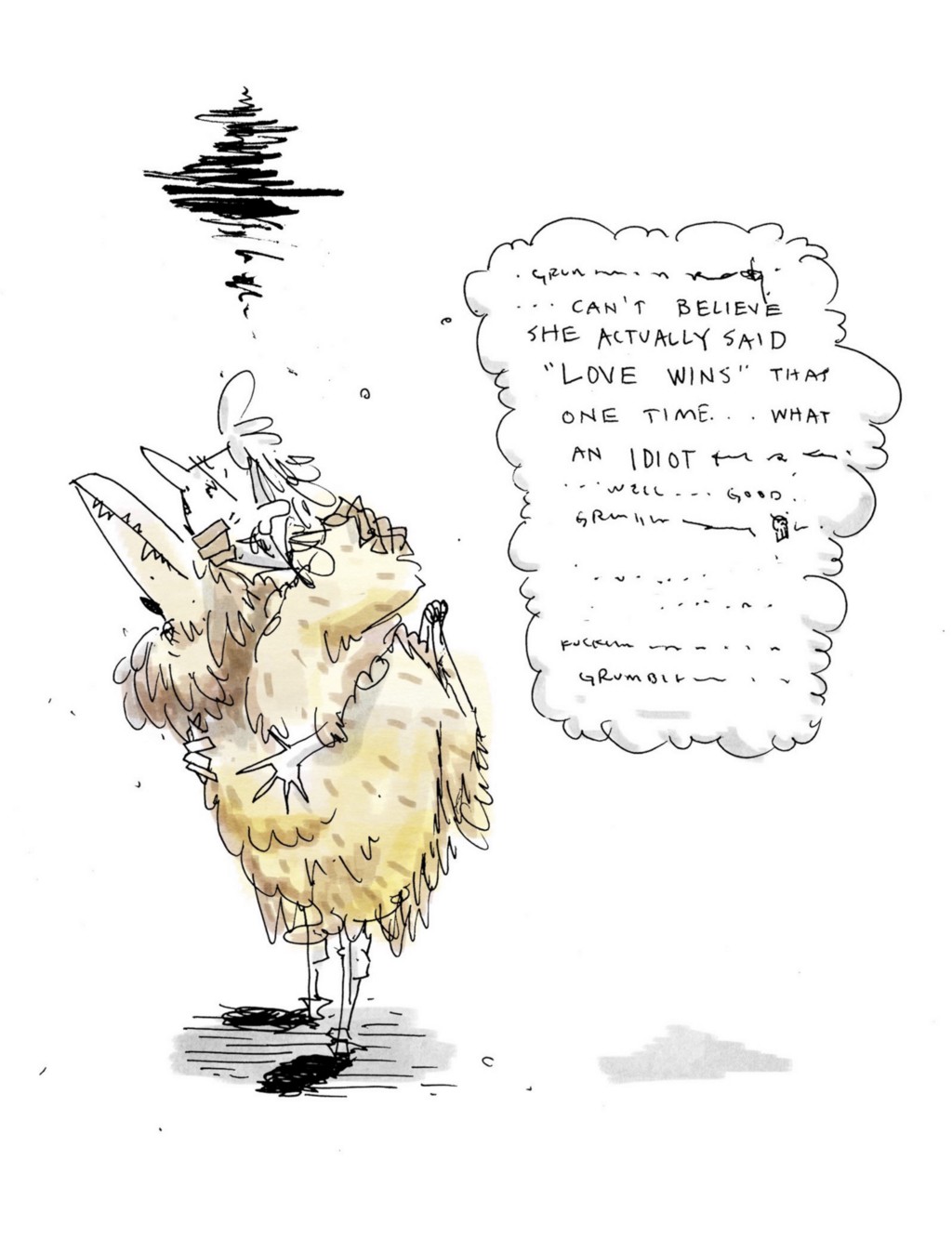
Try the face-to-face hold. This is great for interacting with your Grudge.
Gaze into your Grudge’s eyes. Make silly faces. Enjoy bonding with your cute Grudge.
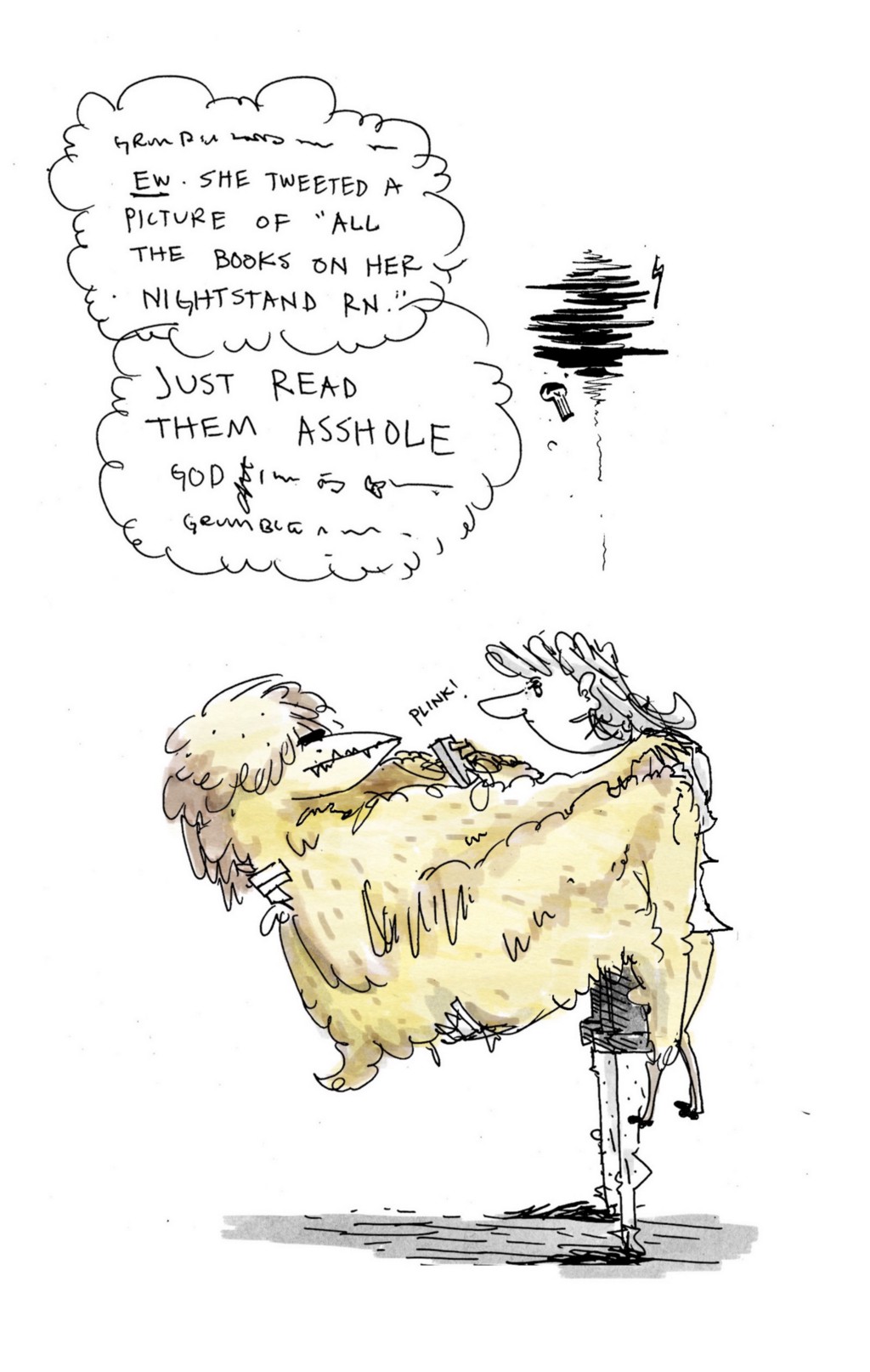
A belly hold is ideal for calming your Grudge when she’s being fussy.
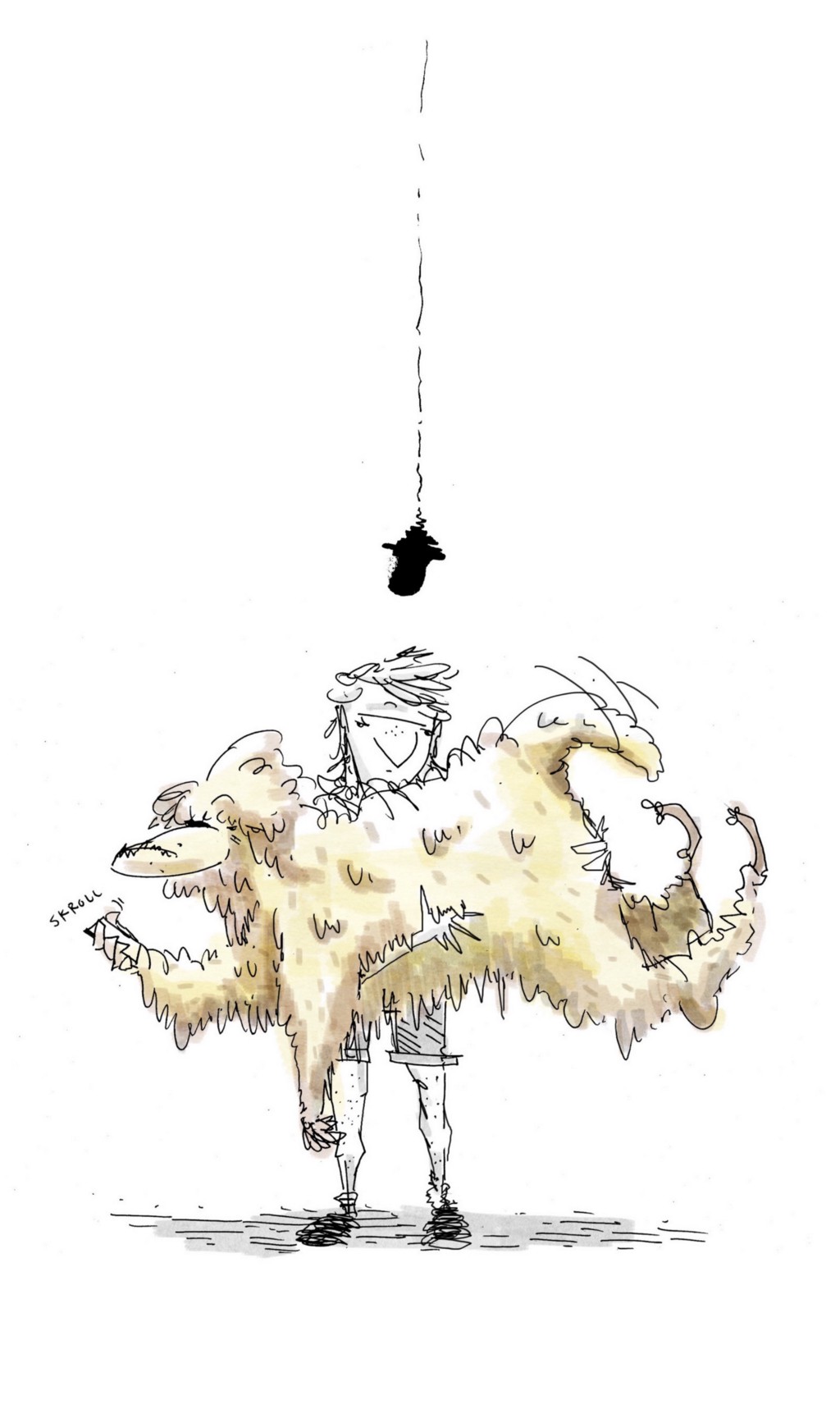
Share babble, songs, and silly conversations with your Grudge.

Vocalizing together is an important step toward imprinting and attachment.
When it’s time for a feeding, the “football” hold is a comfortable choice for both you and your Grudge.
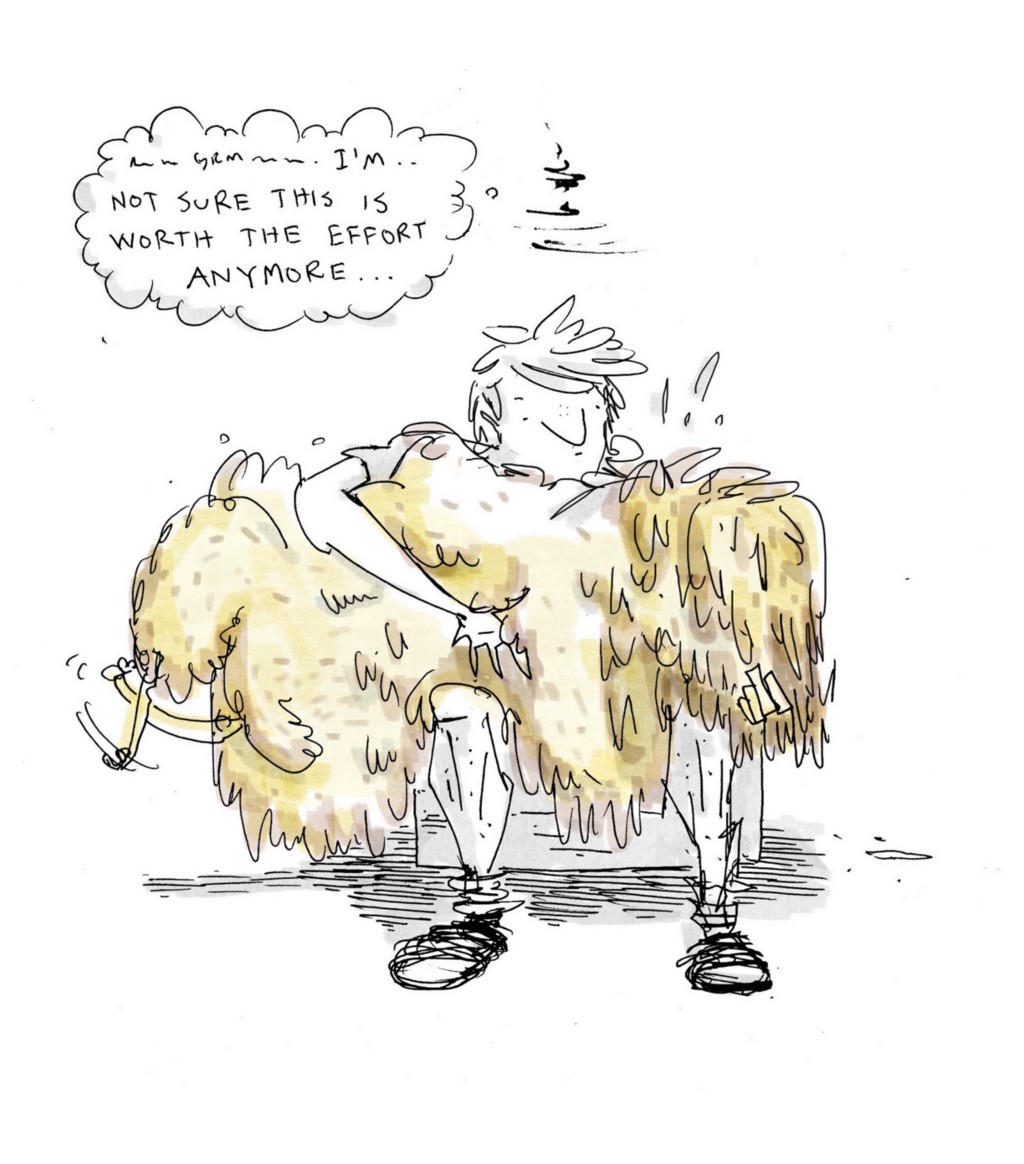
Once your Grudge is a little older (around four to six months), she should be able to steadily support her own head.
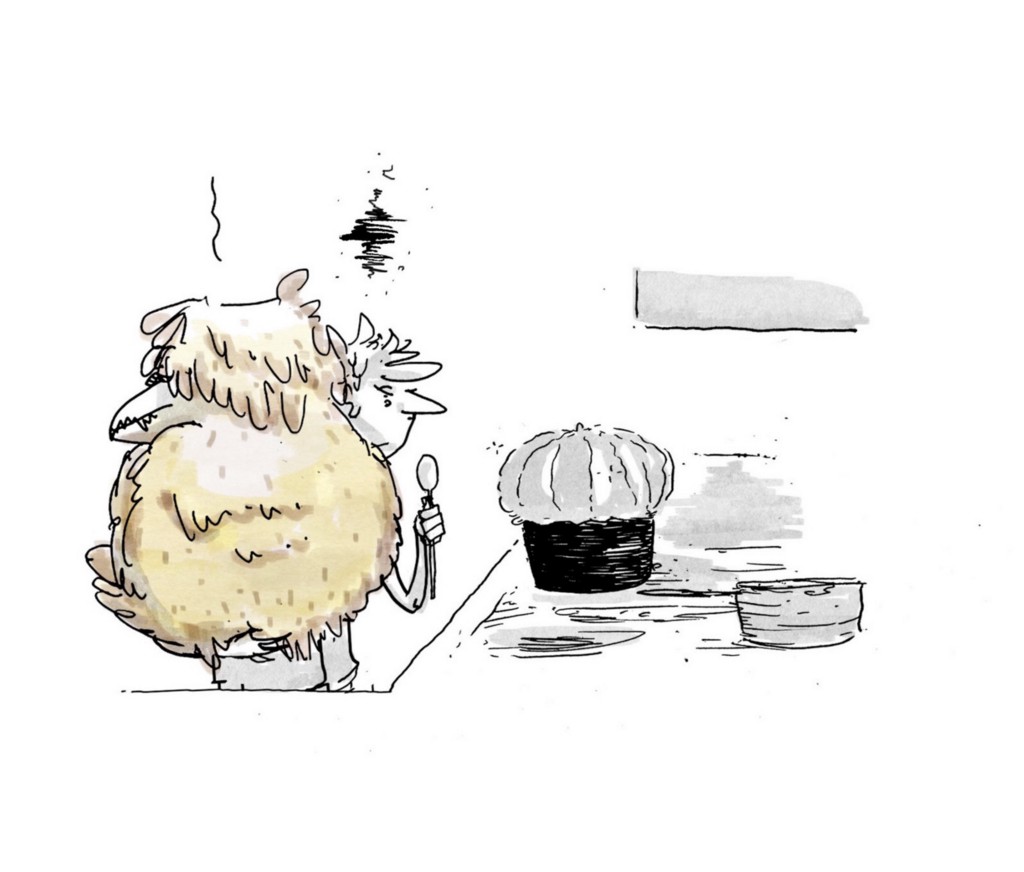
Use a hip hold to liberate one of your arms. Now you’re free to multitask.
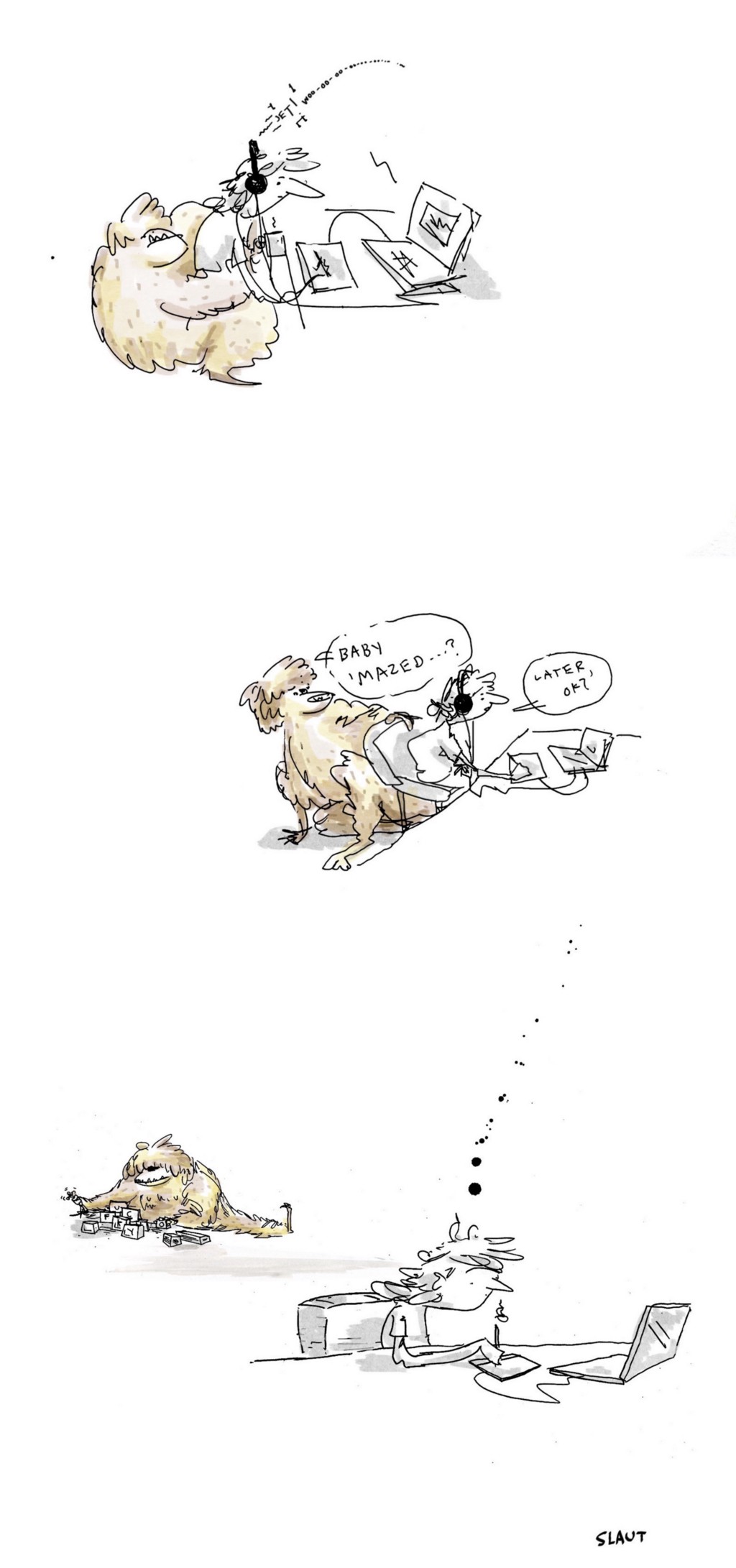
Why Don't Your Friends Like You?
Here’s a hint: It’s not them.

If you were lucky this weekend, you missed the New York Times piece which asked the question, “Do Your Friends Actually Like You?”, because it turns out they don’t. And not just the vague, general you, YOU specifically. You the person reading this right now. All the people who you go around casually mentioning as pals? They don’t want to be your friend. They think you’re kind of a joke. If they ever heard you being all, “My friend Kate” or “Oh, Jeff? He’s a friend of mine,” they would roll their eyes to let anyone else around know that it wasn’t true. There are a number of reasons for this that don’t have to do with how badly you suck, but as you have probably suspected during those dark moments in the middle of the night, most of it does indeed have to do with the quantitative and qualitative level of sucking that you do, which is well above average in both cases.
What’s the problem here? Apart from the gold medal you win in sucking every time you compete? There’s the usual story of self-delusion, where our mental equilibrium requires that we think that people like us more than they do (this is especially necessary for someone like you, whose unprecedented ability to suck defies all known physical laws). There’s the way we all see life as a narrative in which we are the protagonist and everyone else is either a help or impediment to our achieving fulfillment or whatever (in your case, you would have to be one of those anti-heroes who are so prevalent in our popular dramas right now, because no narrative could survive having a hero who sucks so bad unless we were given cause to root for them in spite of the sucking). But also, and perhaps most attractively, we can blame the Internet.
Sounds about right. Forget about the people you know in real life who can barely stand to be around you (because you suck) and are embarrassed that you claim them as companions; consider all the Internet “friends” you have who are mostly “following” you in the hopes that they can get something out of it, even something as simple as a digitized heart at the bottom of whatever idiot image or jape they have broadcast to an anesthetized world where the serotonin boost to self-esteem is so dependent on trivial and effortless action that almost any apparent emotion is blown out of proportion to its actual value. The Internet is very clearly at fault.
It is hard to believe this, given how badly you suck, but the Internet sucks even worse than you. Now I know there are a number of books out at the moment that are all about how wonderful the Internet is, how it sparks levels of creativity that were untapped in human history until this moment, how it helps bring people together who would never have found each other without it, etc. I don’t want to spend a lot of time relitigating the awfulness of the Internet, so I am not going to go into how much bullshit all of these books are spraying out at us. I will even concede some of the points. For example, the Internet does encourage people to come up with astoundingly creative new methods of harassing, threatening and dehumanizing others. And it is true that the Internet is amazing at allowing affinity groups to make contact with each other and organize in ways that they would not have previously been able — look at what it has done for furries, or ISIS. But what the Internet (which is just a very fancy force multiplier for how terrible people—people like you — are) does best is amp up your ability to believe that all the horrible things about yourself (and there are so very many) are invisible to others, or even assets to your appeal. It helps you disregard the (infinite) number of signs and signals saying that you are not as amusing or attractive as you believe. It allows you to count all those “likes” as likes, which for someone whose life is as lacking in like as yours, may be the only thing keeping you from having the frank and honest conversation with yourself that you are so desperate to avoid. The Internet is your only friend because you have no real friends, and you have no real friends because you suck so bad and only the Internet is so much worse that it will hang out with you without feeling ashamed.
So do your friends actually like you? The question is based on a faulty premise, i.e., that you have real friends in the first place. You don’t. You’re garbage. Your only consolation is that you are surrounded by other pieces of garbage, and the whole fetid pile is baking under the hot sun in the landfill that is the Internet. But if it makes you feel any better I will be your friend. The next time you want to say “my pal Al” to people you go right ahead, I will totally vouch for you. Just don’t tell them we met on the Internet, because that will give the whole game away.
How To Spell "Millennials"
An easy how-to guide

There is a Hilton hotel in lower Manhattan, right across the way from the newer and bigger and shinier World Trade Center skyscrapers, and just across from Ground Zero. I used to walk past it every single day, and one day I noticed something horrible. The hotel’s name is misspelled. Or rather, the hotel deliberately removed an ‘n’ from the word ‘millennium’ and it doesn’t even look wrong to most people. According to a very prescient piece by Joanna Glasner in Wired:
The building’s current name dates back to the early 1990s, she said, when the its former owner deliberately chose to spell “Millenium” with a single “n.”
At the time, he was well aware that the spelling was wrong, and that millennium should be written with two Ns, Hall said. However, he figured the small aberration in nomenclature would make the hotel stand out from the crowd.
Wow, what a bad idea, except I have to hand it to him because I guess it worked; I noticed! The problem is that most people don’t. Glasner goes on to name-check a bunch of other businesses nearby that use and misspell the word, probably none of which are still there or open because this piece was published in December of 2000.
What is it about this word that gets us every time? Glasner cites journalists, of all culprits, an old version of Microsoft Word’s spellcheck, and the spelling of the word in foreign languages like Spanish. She adds:
There’s also the well-documented fact that the pursuit of accurate spelling has historically been ridden with failure.
Nice try, Joanna, but every pursuit on earth is historically ridden with failure—most things don’t work out. But right now, we’re in the midst of the Summer Olympics, and thanks to NBC’s prime-time broadcasting, I’ve caught the fever of American exceptionalism. I would like to implore journalists everywhere to do better. Don’t settle for failure—spell this goddamn word correctly; it’s not that hard. Here are some tips:
Step 1: Don’t use it.
Step 2: If you must, remember there are two ‘n’s.
Step 3: I don’t care if you didn’t take Latin, you KNOW that the word comes from mille for thousand and annus for year, I mean just THINK about it. It’s the same as perennial or annual or anniversary or centennial or biennale.
Step 4: TWO ‘N’S!!!!!!!!!!
Step 5: Please like and share this post. Thank you.
